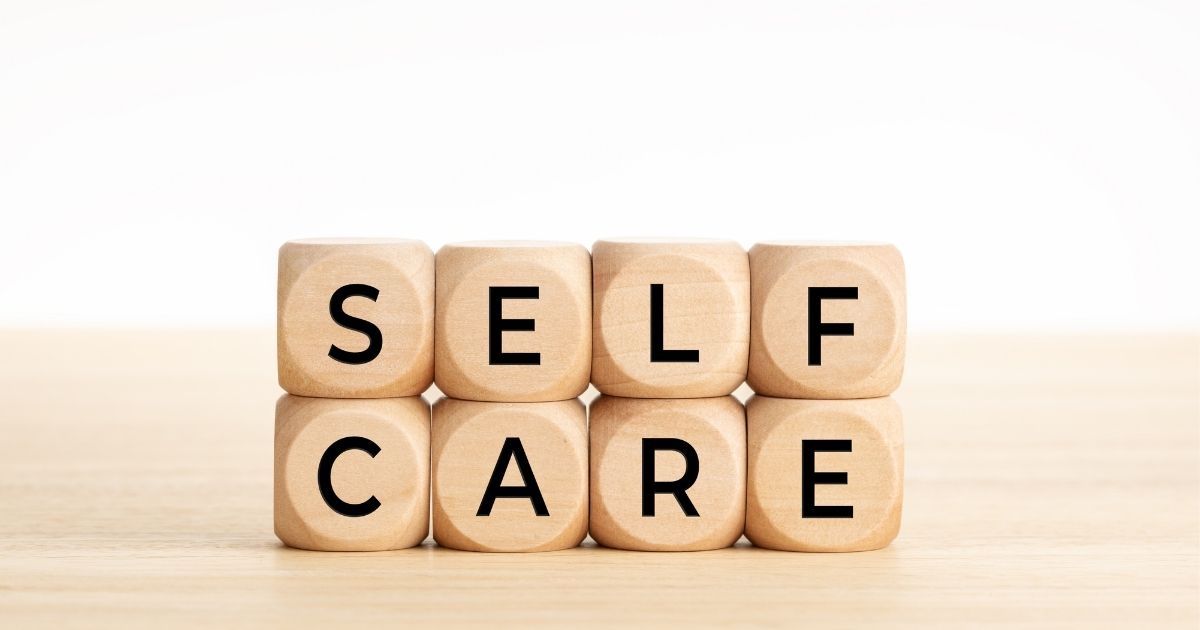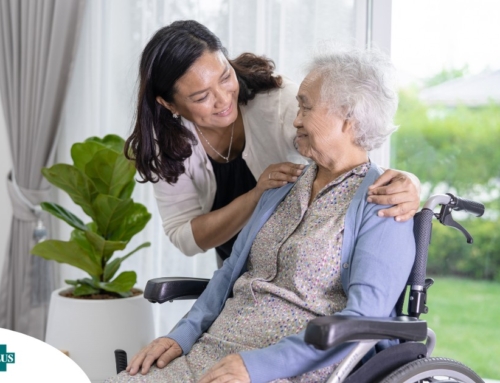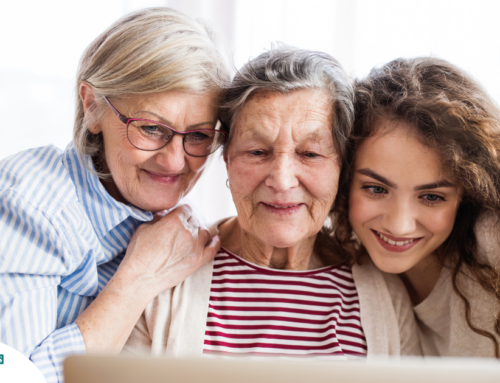It’s been said that “self-care is selfless, not selfish.” Yes, it’s good for your wellbeing as a caregiver, but it’s also very beneficial for the loved one receiving the care. It’s true – you can’t care for others if you don’t care for yourself.
If you own a car, you know it needs to have its oil changed and spark plugs replaced periodically, or eventually, it will stop running and not serve its purpose. The same is true of people, including caregivers. Self-care is a personal tune-up that keeps us mentally and physically healthy so we can be our best and serve our purpose.
Self-Care is Considering Others
Self-care is the opposite of being selfish; it’s being considerate of others. Healthy individuals care about how their actions impact those around them and make their best effort to act in the best interests of other people’s health, safety, and happiness.
Flight attendants tell adult passengers to put their oxygen masks on first and then attend to the needs of children and help them put their masks on. If the adult doesn’t put their mask on first, they’ll eventually pass out from lack of oxygen and not be able to help a child.
Self-care is putting your mask on first. The pandemic has taught us that keeping ourselves healthy keeps our loved ones and neighbors from getting sick and overwhelming our health care system.
If you’ve been struggling with feeling selfish by practicing self-care, we hope this article changes your perspective. But, we’d be negligent in our duties if we didn’t give you some tips on practicing good self-care.
3 Tips for Maintaining Your Wellbeing as a Caregiver
1. Make eating well and getting quality sleep priorities.
Maintaining adequate nutrition and sleep are essential in preventing caregiver burnout. The Mayo Clinic has provided some wise counsel on getting better sleep. They advise adults to:
- Stick to a sleep schedule
- Pay attention to what you eat and drink
- Create a restful environment
- Limit daytime naps
- Include physical activity in your daily routine
You can read the full article from Mayo Clinic here.
Proper nutrition is also an essential part of self-care. Chronic stress leads to inflammation in the body, which slows us down and makes us feel uncomfortable – not exactly the ideal state to be in if you’re caring for a loved one. So, breathe deep, and avoid processed foods or foods that are high in refined sugars.
2. Remain socially connected.
As a family caregiver, scheduling time for social activities with friends and family can be difficult. But, being connected to others helps you feel less isolated and can build your self-esteem. And, many hospitals and organizations offer caregiver support groups.
3. Ask for help from others.
Part of good self-care is not going through challenges alone, and it certainly is challenging being a family caregiver. Having your spouse prepare a couple of meals every week or asking a friend to drive your loved one to an appointment can alleviate some of the stress in your life.
Utilizing respite care is another way you can care for yourself. Have a professional caregiver come in a couple of hours per day or a couple of days every week. This will give you a well-deserved break, and you can rest easy knowing that your loved one is in dependable, capable hands.
Let Us Help You Maintain Your Wellbeing as a Caregiver
For over 25 years, AmeriCare Plus has been providing respite care for family caregivers throughout Virginia. Our respite caregivers are available 24/7 – we’ll figure out the best schedule to meet your needs.
Get started by scheduling a free in-home assessment. Just call us or submit this short form.
And remember, put your mask on first!
Continue Reading
Get a personal assessment.
Call us today at 1.844.407.2273
Schedule your free, no-obligation assessment today!










